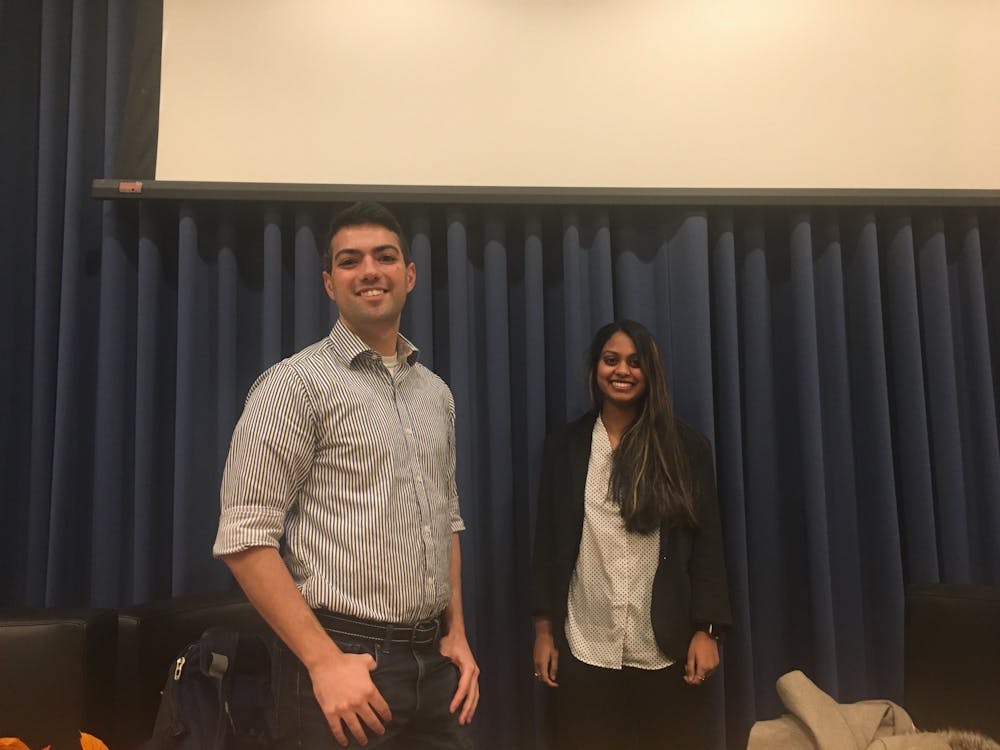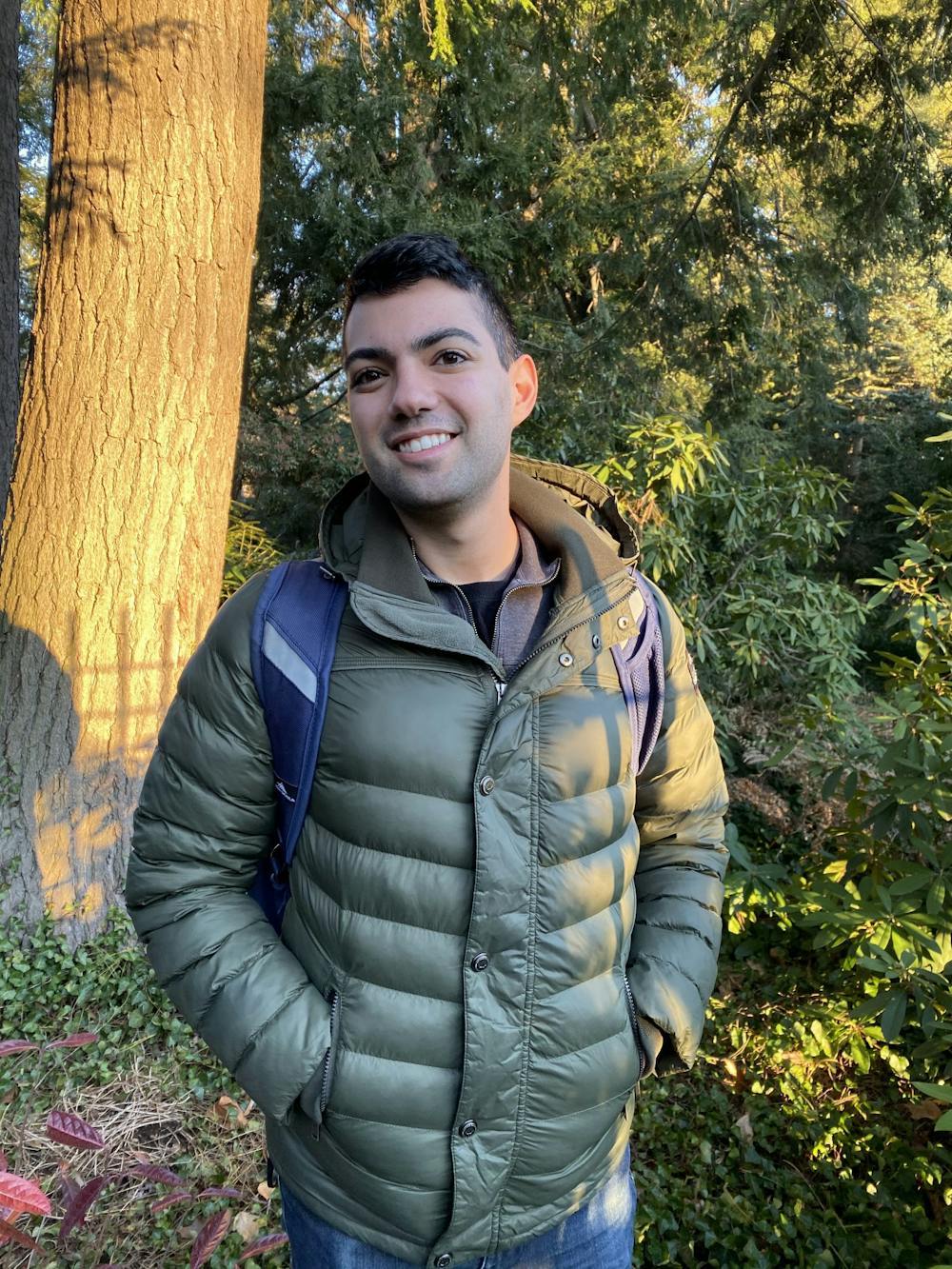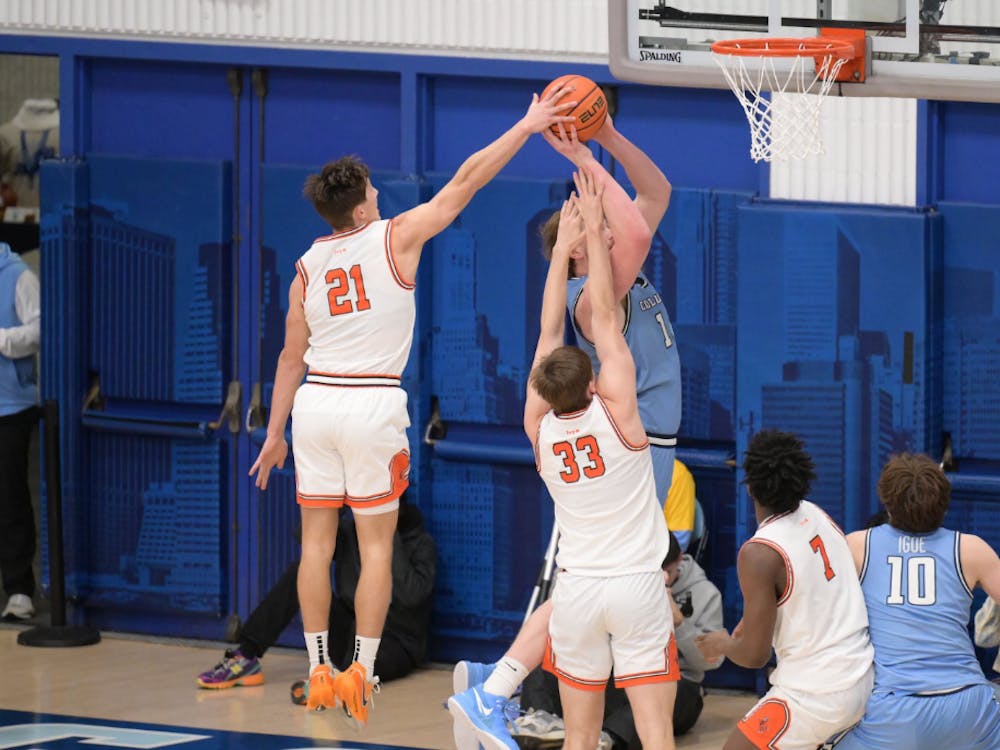David Esterlit ’21 is running against Chitra Parikh ’21 for Undergraduate Student Government (USG) president for the 2020 term. The Daily Princetonian sat down with him to discuss his candidacy, prior experience, and priorities to improve student life and wellbeing on campus. Below is a lightly edited and condensed transcript of the conversation.
Click here to read Parikh’s Q&A with the ‘Prince,’ and click here to read our coverage of last week’s USG presidential debate.
Daily Princetonian: To start off, could you tell us a little bit about yourself: your hometown, your major, what you do on campus — your background in general?
David Esterlit: Sure. My background is a bit different than the Princeton norm, I would say. After my sophomore year, I felt sort of aimless, I couldn't find myself here. So I decided to do the most noble thing I can think of doing, which was joining the Israeli army. I served there, specifically on the Egyptian border, protecting — actually, Israel has a real expansive Thai guest worker program — so protecting Thai laborers and Israeli border communities from ISIS attack. Then I spent around a year in the Israeli parliament. And here we are today. I've returned. Unfortunately — maybe I should've thought about this a little bit better before — but all my friends have graduated ...
I study politics. I’m from Livingston and Short Hills, [N.J.]. What do I do on campus? Well, I’ve mainly focused on just getting back to the academics here. Once you’re out for a few years, it’s tough to come back. I sort of just miss working. I miss being a barista at Starbucks, believe it or not. Do not get between someone and his latte. Like, bodily harm can occur.
Yeah, so now my main extracurricular is running this campaign. It is not easy. Very much word of mouth. I hope I’ve spoken to 1,000 people already — actually just yesterday I went to Mathey-Rocky, during brunch, and just announced. Much more receptive in Mathey than in Rocky — not sure why. And today we tackled Forbes brunch.
DP: Why are you running for president?
DE: Well at the beginning, I ran just so I can open the possibility on this campus to this sort of discussion, so people can talk about this. I thought my chance of winning wasn’t very high. I didn’t know anyone on this campus. I didn’t have much of a base; I’m very much an outsider. But then I started getting — my email started exploding.

And people started getting really intrigued and interested in this message to really expand the purview of USG. People think that I really detract USG. It’s somewhat the case. But it’s mostly that I don't believe that USG is living up to its potential and that we can help it get there, and it’s just a matter of political will.
DP: What is the greatest problem that you see on campus right now, and what is your plan to solve it?
DE: The greatest problem is definitely economic. I think the administration displays a real ivory tower attitude to economic change on this campus. Let me give an example: even when it comes to students on full financial aid, the administration ignores the opportunity cost of being on this campus. It assumes that kids who, even though they don’t spend any money on the university itself, still bear miscellaneous expenses. And it assumes that the seeds weren’t breadwinners for their families already. I don’t think that’s a fair assumption to make. Breaking that economic taboo, that’s really the priority of this campaign.
DP: What role do you think that experience plays in this job? And then, how do your personal experiences inside or outside of USG qualify you for this position?

DE: I definitely think that, actually, the outsider mentality here, the fact that you come in without a status quo mentality, here to break things, to change things. Clearly, this institution isn’t working for students. They just don’t care. You saw the debate. That was embarrassing. The voter apathy is incredible. It was actually back in 2014 that really solidified this idea in my head when William Gansa ’17, the joke candidate, ran, and turnout exploded. And he almost won. And my thing was, Princeton students are serious kids. They care about their campus. Why don’t they care about USG? Clearly something is flawed here. I don’t think that flaw resides in the Princeton students. I think it resides in USG.

Candidates David Esterlit ’21 and Chitra Parikh ’21 pose following the USG presidential debate.
Photo Credit: Evelyn Doskoch / The Daily Princetonian
DP: So, actually tying in very nicely to my next question, apathy has been a huge issue in recent years. If elected, what will you do to promote renewed interest in student government?
DE: Well, my specific theory of the election is that students care about economic concerns, but they’re the silent majority that doesn’t speak about it because it’s taboo. It’s not talked about on campus. It should be talked about on campus. I think USG can really — I can act as a sort of bull, perhaps a bull in a china shop a little bit, to break down some doors and get people to notice, crucially, not just this campus, but the administration, and even more importantly, donors. When donors begin to notice, anything is possible. It's amazing the power these people have.
DP: What do you think sets you apart from your opponent?
DE: Absolutely my outsider status. The real novel idea that I bring to the table and the novel perspective on what USG can achieve. I think USG is only as powerless as it allows itself to be. I mean, to be honest about USG, I’ve been here for five years. I’ve gotten five years’ worth of campaign emails. I compare and contrast what they promise and what has actually been done. The names and faces may change, but the platitudes and legacy of inaction have been the same. I think that's deeply sad.
DP: And so, finally, in the spirit of positivity, what do you respect or admire most about your opponent or their platform?
DE: [Her focus on] disabled students . That was news to me that 40 percent of residential dorms on this campus do not have ramps. I do wonder if this was ADA compliant. I wonder if my opponent has explored that option. I wonder if she believes if it is ADA compliant or not, and if she doesn’t believe so, why hasn’t she just called the ADA?
I actually called the ADA a couple of days ago, to ask about filing a complaint. It’s really easy. It’s all online. Why should we go to the administration? Why not just get a government inspector over here. They can assess the situation and force the administration's hand that way. That’s how we deliver to our constituents. That’s also an example of an outsider mentality. Sometimes it’s worthwhile to be more combative in order to get things done.








